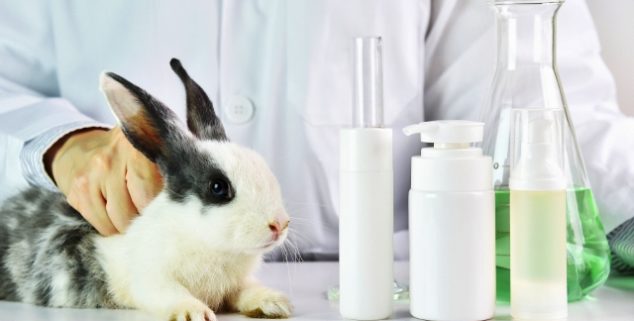Opinion
Cosmetics and a ban on animal testing
 A rabbit in a cosmetic testing laboratory. (Photo: By Artfully Photographer)
A rabbit in a cosmetic testing laboratory. (Photo: By Artfully Photographer)There’s been heightened discussion in Sacramento about a bill that could eliminate the sale of many cosmetics and personal care products in California. Senate Bill 1249 proposes to ban the sale of any cosmetic and cosmetic ingredient that has undergone animal testing, even if required by California or other governments.
Unlike measures that are already in place in the European Union and other countries, SB 1249 does not properly take into account those cases where testing is mandated by foreign or domestic governments.
While we are making great strides in policy and in practice to minimize animal testing, we are at times challenged by U.S. and foreign government mandates.
This bill would even impact companies whose products or ingredients were tested by other industries or individuals without their knowledge or control.
As currently drafted, this bill would jeopardize 415,000 jobs in California related to the personal care products industry, $29 billion of California’s GDP and $7.2 billion in tax revenue.
Our industry supports strong but pragmatic regulations to ban the sale of cosmetics and personal care products tested on animals.
For nearly four decades, cosmetics and personal care products companies have been at the forefront in nearly eradicating the use of animals in product safety testing. Our industry has invested heavily in research and development to identify viable alternative safety testing methods. This important work began in 1981 with a $1 million industry grant to establish the Johns Hopkins University Center for Alternatives to Animal Testing (CAAT). Cosmetics companies now only consider animal testing when required by government bodies.
While we are making great strides in policy and in practice to minimize animal testing, we are at times challenged by U.S. and foreign government mandates, such as those by the California Department of Toxic Substances Control and by regulatory authorities in China, that require specific animal tests.
SB 1249 was originally intended to mirror regulations in the European Union (EU) that ban animal testing. However, this bill goes well beyond the EU law and is simply not workable. For example, Europe’s regulation does not ban products that have been tested for the purposes of Chinese or other regulations.
In this way, U.S. and California companies would be at an unfair disadvantage in relation to international competitors.
The legislation also raises other complex trade issues, as it would prohibit imported products that have been tested according to other national or international laws.
Cosmetics and personal care products enhance the well-being of consumers in California and globally. We continually support research and innovation based on alternative test methods, and we actively engage with regulators in the United States, China and in other parts of the world to convince them to abolish their animal testing requirements.
Our industry remains committed to doing the right thing – it’s what we have been pushing for nearly 40 years — but this bill will create more issues than it resolves. We all share in the goal of one day making animal testing for cosmetics and personal care products obsolete, and no one knows that better than we do.
—
Editor’s Note: Lezlee Westine is president and chief executive officer of the Personal Care Product Council, a national trade association representing the global cosmetics and personal care products industry.
Want to see more stories like this? Sign up for The Roundup, the free daily newsletter about California politics from the editors of Capitol Weekly. Stay up to date on the news you need to know.
Sign up below, then look for a confirmation email in your inbox.

If the auto industry was able to profitably produce CA emissions cars alongside 49-state cars to meet our state’s more stringent emissions standards, I’m sure the makeup industry can come up with such a dual stream product line as well.
As to banning products coming into CA that were tested on animals to meet Chinese standards, that’s the point.
California has often moved the nation forward on antiquated practices by closing the door on them, not forever accommodating the lowest common denominator.